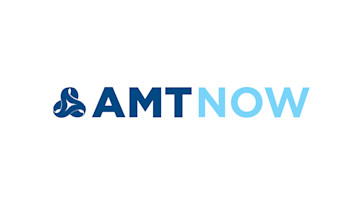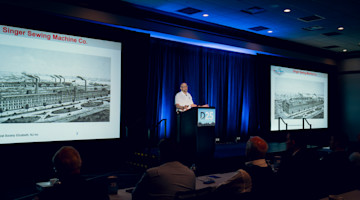A decade after President Barack Obama announced America Makes as the first manufacturing innovation institute in the Manufacturing USA network, President Joe Biden was back in Ohio to launch another effort to boost additive manufacturing (AM). Additive Manufacturing Forward (AM Forward) is a public-private initiative implemented and managed by ASTRO America to accelerate the adoption of 3D printing technology by small and medium-sized manufacturers.
Any OEM willing to make public commitments to demand additive-produced parts and otherwise support their U.S. suppliers’ adoption of additive capabilities can participate. Several large companies, including GE, Raytheon, Siemens Energy, Lockheed Martin, and Honeywell, are already signed up. They committed to their smaller, domestic suppliers to purchase AM-manufactured parts, train employees, provide technical assistance, and create standards and certifications for AM technologies and products. Organizations such as America Makes, NIST MEPs, and ASME will also contribute their experience and expertise to the program.


The administration sees AM Forward as a path to more resilient supply chains, increased U.S. competitiveness, and good-paying jobs. During his announcement, Biden called for passage of the Bipartisan Innovation Act (BIA), legislation that passed the House and Senate in different forms and is now in conference to iron out those differences. Both versions are complex and expensive, weighing in at over 3,000 pages and more than $350 billion in cost. That’s a challenge for the 107 senators and representatives charged with arriving at a compromise package that can reach the president’s desk. The target date of Memorial Day has come and gone, and it will take substantial heavy lifting to complete the negotiations by the July 4 or even the August recess.
With most bills that large, there are beneficial and harmful provisions. AMT supports $52 billion in direct funding for the domestic semiconductor industry, significant investments in advanced technologies, and a new Office of Manufacturing Security and Resilience at Commerce that would monitor, identify, and help fill supply chain gaps. We’re actively opposing the labor and union card check provisions. Finally, there could be an opportunity to include a new tax provision that reverses the requirement that companies deduct R&D expenses over time rather than the year the costs are incurred. Enactment of the BIA could also authorize expanding the AM Forward approach to other advanced technologies.
AMT agrees that more widespread use of advanced manufacturing technology is key to economic growth, national security, and job creation. Our Manufacturing Mandate calls on the government to work with industry, schools, and communities to accelerate the adoption of advanced manufacturing technologies.
For more information on participating in AM Forward, visit amforward.org.






